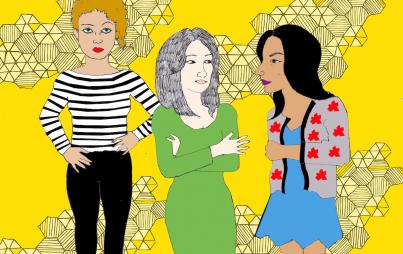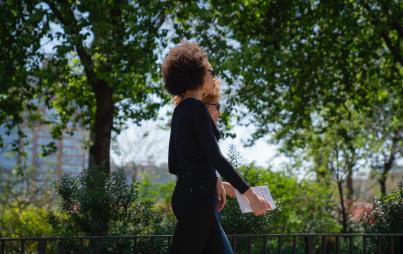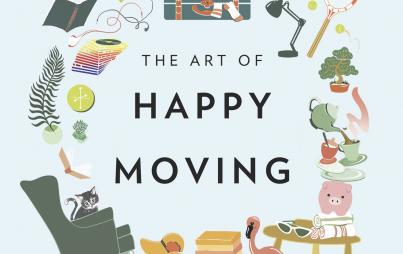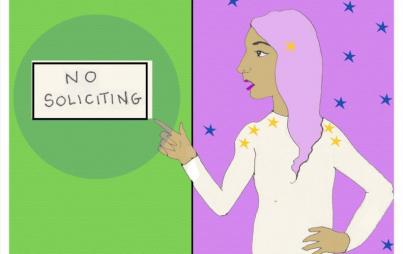
I’m in this strange place where I have close friends, many acquaintances, and only now am I figuring out what is important to me.
Lisa Marie Basile's What's Not Said column explores topics people feel uncomfortable talking about out loud — things that exist in nuance and areas of shame or misunderstanding.
The older we get, the harder it is to make close friends — the kind of friend who can sense your mood with uncomfortable accuracy. The kind of friend who reads your zodiac sign first. The kind of friend who can be honest about their flaws — and yours. The kind of friend who genuinely wants what is best for you.
In one sense, it feels like we have endless acquaintances at our disposal via our online communities (which is wonderful and powerful in its own right), but in another, it feels as though we are always slipping through the cracks found between true connections.
We watch our friends get married and have children, move to new countries, adopt new belief systems, or find a place in societies you’ll never understand. Sometimes you just can’t bridge the gap of distance. Sometimes you don’t have the energy to fight for it. Add to that life issues — money matters, racial issues, gender inequality, political fuckery.
Around your late 20s and 30s+, you’re just not looking for drinking buddies.
You are looking for god-damnity-you-better-help-me-move friends. Friends who know your blood type. You’re looking for meaningful connection — some sort of relationship that challenges you intellectually, stimulates you emotionally, and shines with an undeniable, endless iridescence that says, ‘this is forever.’ It may stem from the knowledge that life is getting shorter; therefore, we must make our surroundings more powerful.
♦♦♦
When I was 13, I was plagued with the typical issues of teen-dom; some of the girls picked on me for being quiet, ridiculed me for wanting to read books over socializing, or flat-out disregarded me (I think that hurt the most). It was painful, but it didn’t matter because I had my crew — we were the leftovers, the ones who were discarded by the popular kids. This is fairly typical. As I grew, times changed. I stopped being “the strange one” as I surrounded myself with artists and writers who became the new “normal.” I fell into place with relative ease. I would never be the life of the party (I’m a Scorpio, after all; we relish sitting in corners watching you watching us watch you), but I was socially sound. I’d figured out how I fit into the world. I was loved — and sometimes hated — but I knew my place. I thought it would last eternally.
Today, as a 31-year-old, I can count on one hand the people I dearly trust.
Even if you want to trust countless people, you’ve only got so much to share and to give, and so you find yourself cutting people out. Only certain people make it past the threshold.
♦♦♦
I remember watching, My Summer of Love, a film based on a book about two young girls whose friendship explores sexuality and obsession. I felt it was a beautiful and telling look at the simplicity with which we (especially young women) can fall into friendship — heavy and with dreamy-eyed intimacy, full of secrets and pomp, with that touch of possession. It wasn’t always healthy but it was real. Eventually, those sorts of things roll away as we tighten up and clean out our proverbial closets and hold fast to our secrets. We keep to ourselves more. We try to stay orderly and intelligent and without risk. It makes sense, of course, but it also puts us into a sort of cage — one that we build ourselves.
♦♦♦
According to a piece in The New York Times, Friends of a Certain Age: Why Is It Hard to Make Friends Over 30?, there other factors at play, like money and class status. People become increasingly aware of social attitudes around money. People lose sight of their privilege or people tend to flock toward those who can empathize with struggle. Others surround themselves with the privileged to avoid the realities of others. With this sort of thing also blossoming up around us, it’s no wonder we’re having issues connecting.
♦♦♦
So what can we do?
The aforementioned Times article suggested we find friends to fill our different needs: a friend for the gym, a friend to attend literary readings with, a friend who will help you through a breakup, a friend who will attend dinner parties with you, a friend who will put you in your place when you need it. Is this a solution? Or are we looking for close friends we can do everything with — not friends who will fill this role or that role, only ever showcasing as necessary?
On another hand, do we simply accept the limitations and smallness of our groups? As one writer, Nicole Fabian-Weber, put it, you might not have a lot of friends who are willing to give you a ride to the airport, and that’s liberating and sad all at once. You just sort of deal.
According to another study, we replace friends every seven years (so, like, our credit scores? Thank you?).
I’ve noticed that this is the case — I cycle through different groups: college, then graduate school, then literary groups, and now I’m in this strange place where I have close friends, many acquaintances, and only now am I figuring out what is important to me. I suspect that seven years from now, things will have changed drastically. I find a strange comfort in that, especially looking in hindsight.
A Psychology Today article says there are a few things we can do — accept invitations that you perhaps normally wouldn’t, know that one person can’t fill all needs, understand that everyone has different needs, and know that your career or social standing may dictate how others slot you in as friends.
You Might Also Like: 5 Tips For Making Grown-Up Friends
For me, I find practical advice abstract at best. While we need to step out onto a ledge from time to time, it doesn’t stop the grief of friendship loss or change the fear of growing older and losing that effortlessness.
It doesn’t help that some of us are burning on the inside for something so real and so effortless — especially when the close friends you do have are far away or limited by their own familial or social obligations.
I do try to remind myself that life is big and blossoming and beautiful — and if we choose to keep our sights set on potential and possibility, it tends to manifest.
It’s easier for me to close up, to hold tight to my worries and comforts — but it’s worth it for me to let the tide pull me in and take me out now and then. If something sticks, so be it. If not, maybe next time. It’s a big, wild world.
And while I’m waiting for the tides to change, I work closely on my intense friendships by way of honest conversations and openness to vulnerability and making real time. I try to keep those things alive. I remain grateful, I ask how I can help my friends grow and be happy, and I try to grow with them. I am not perfect, and it is a journey.








